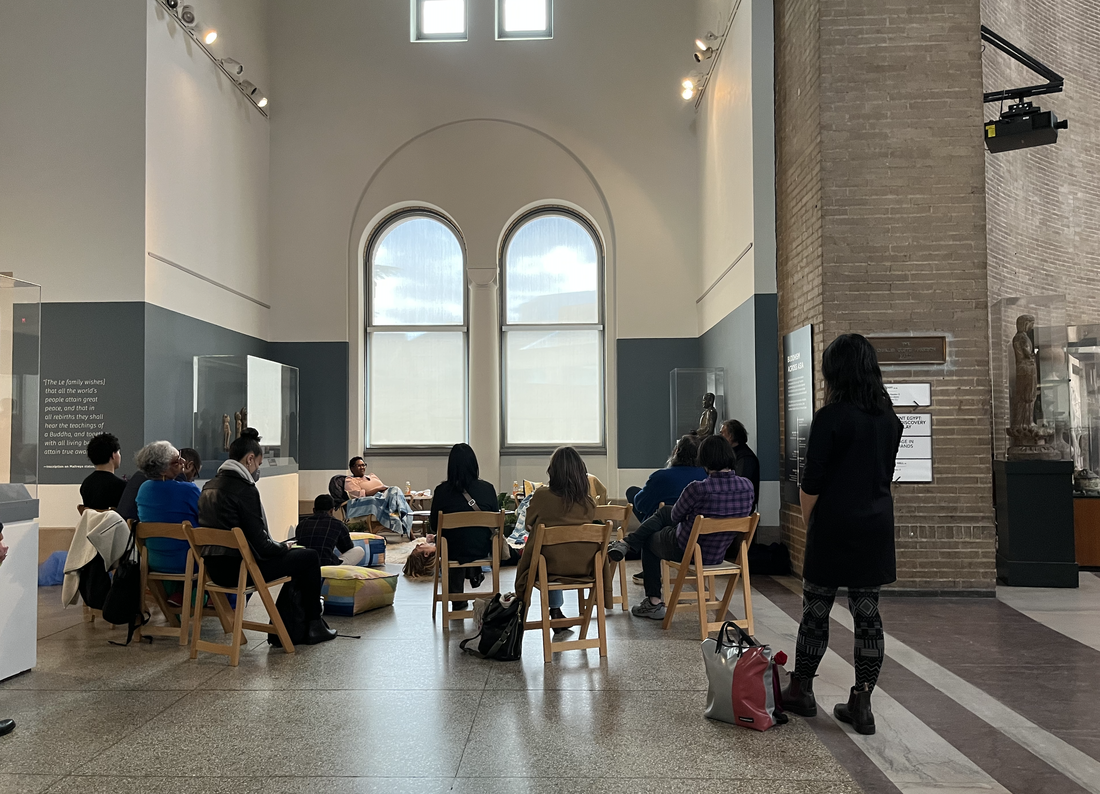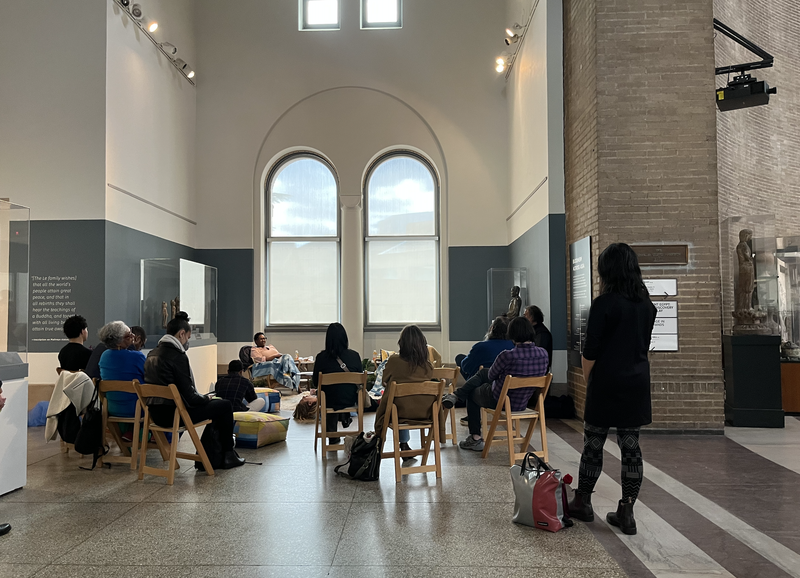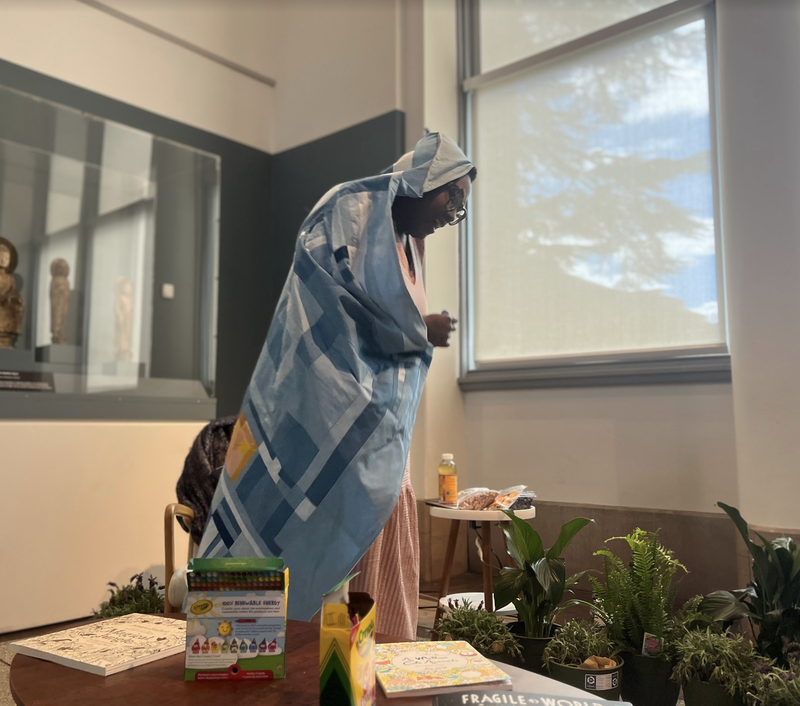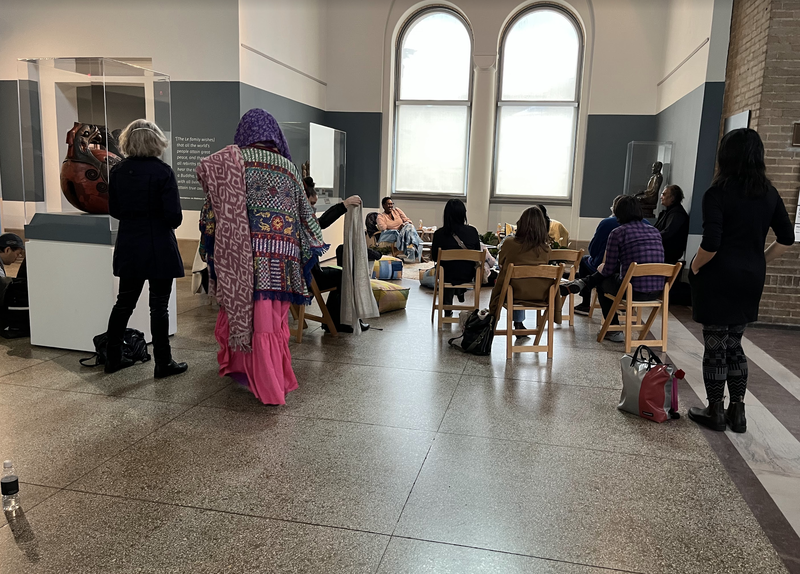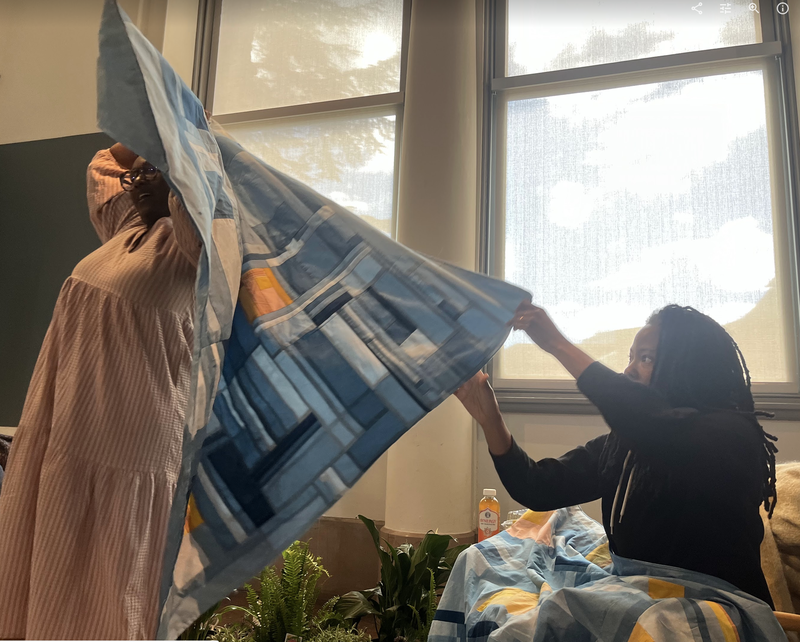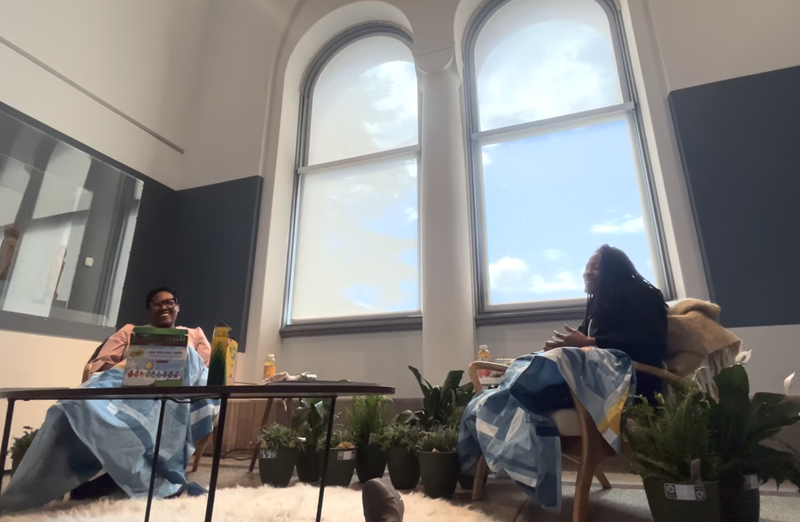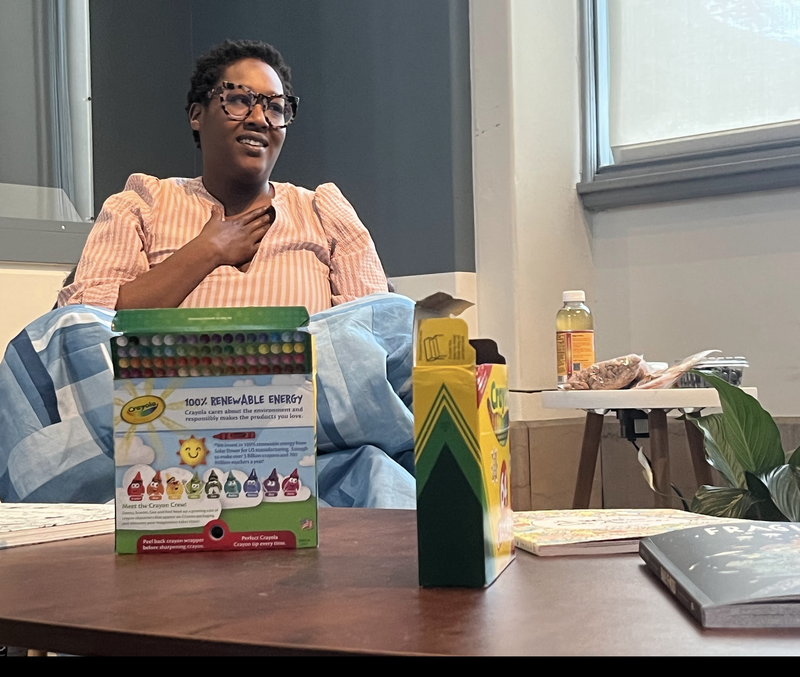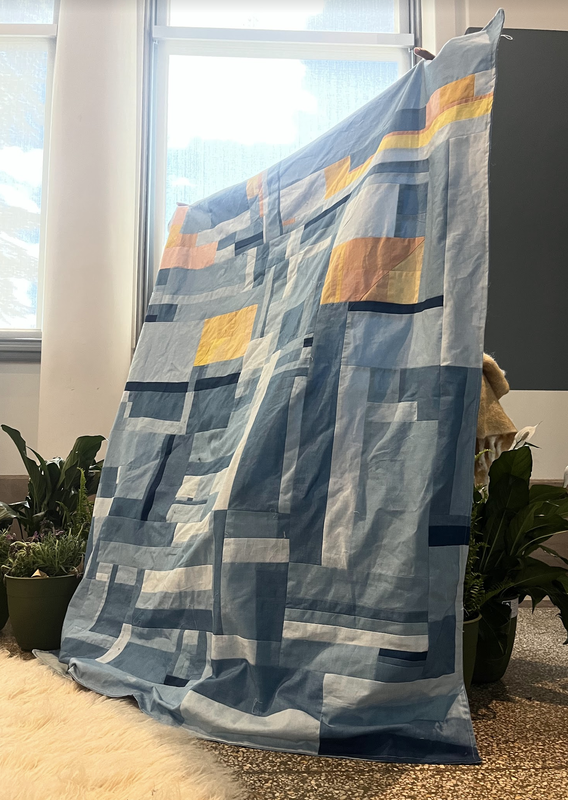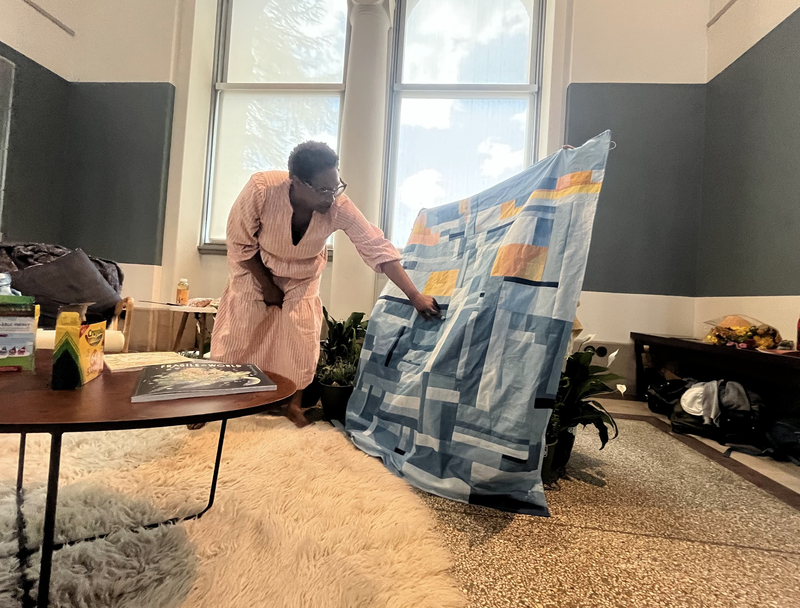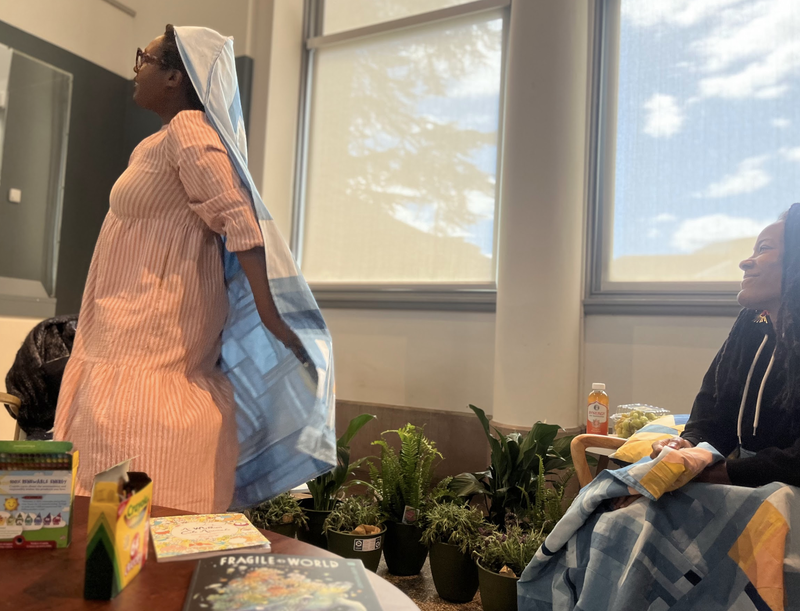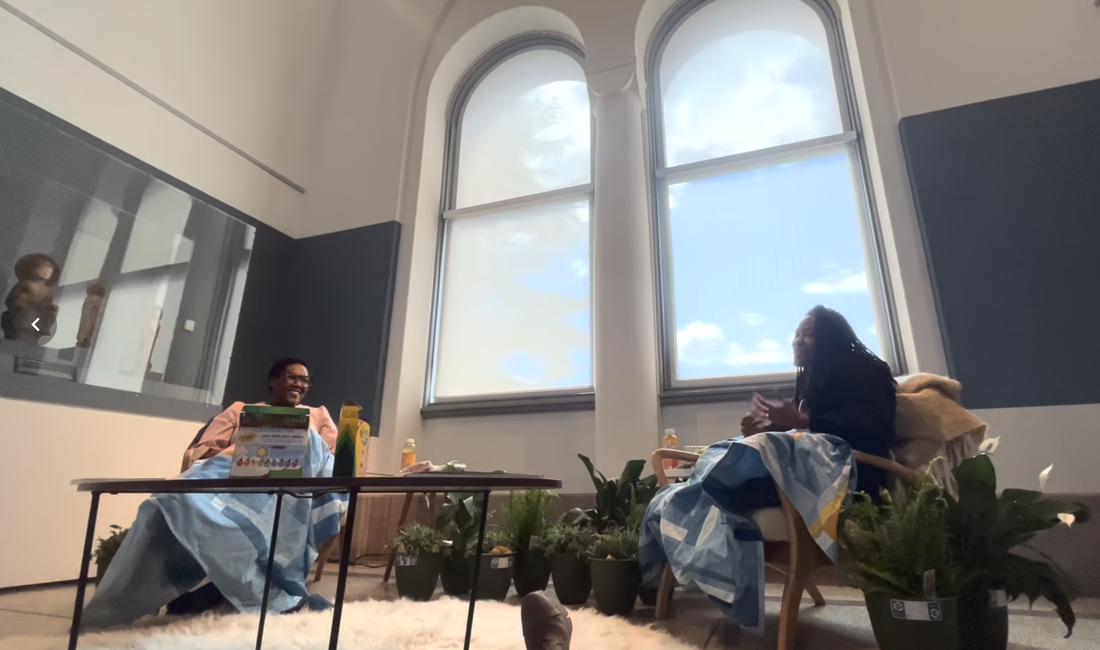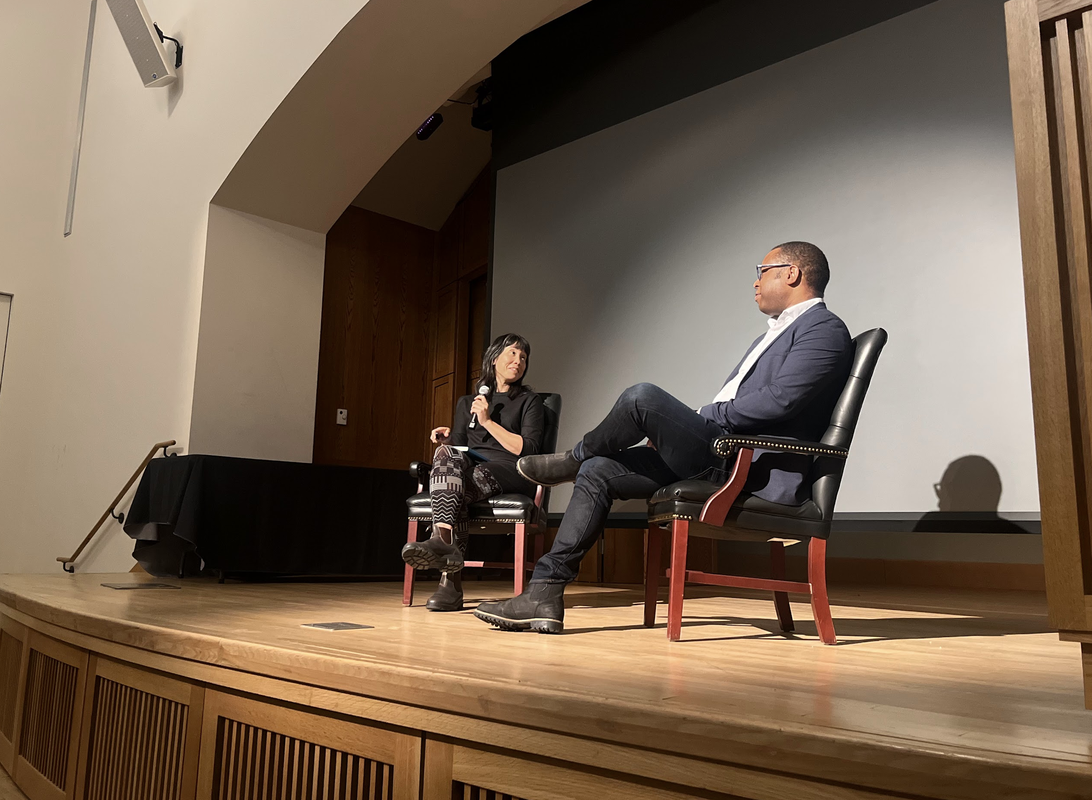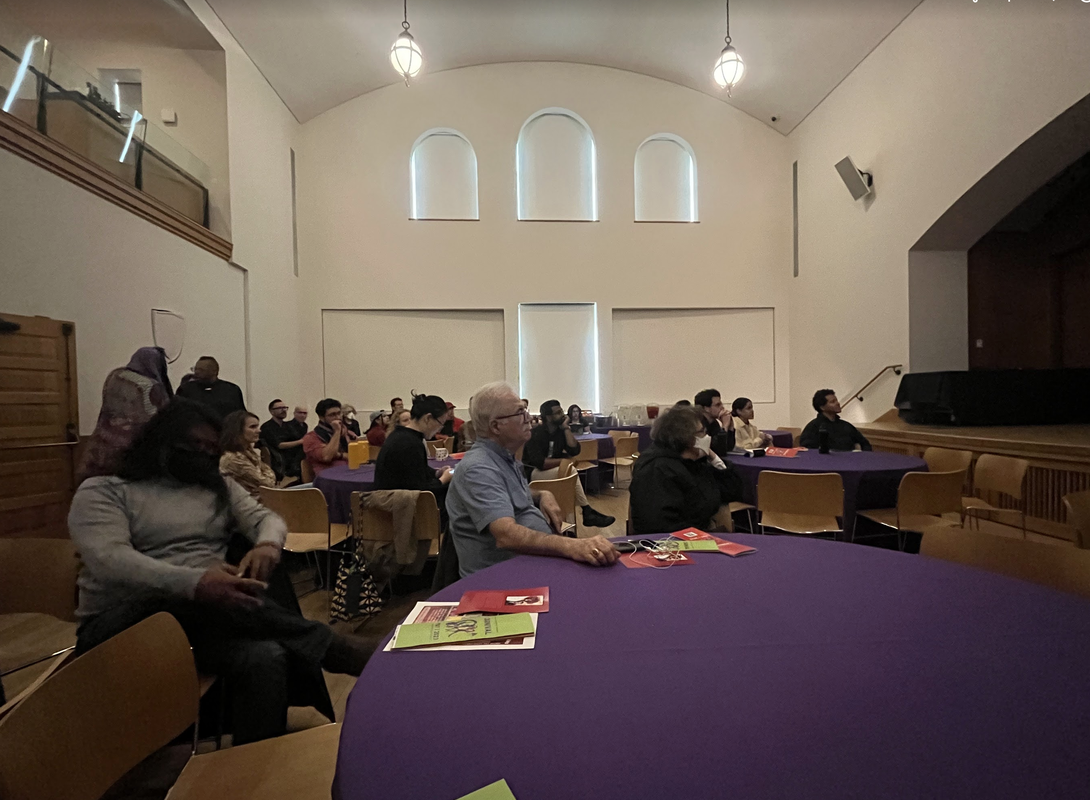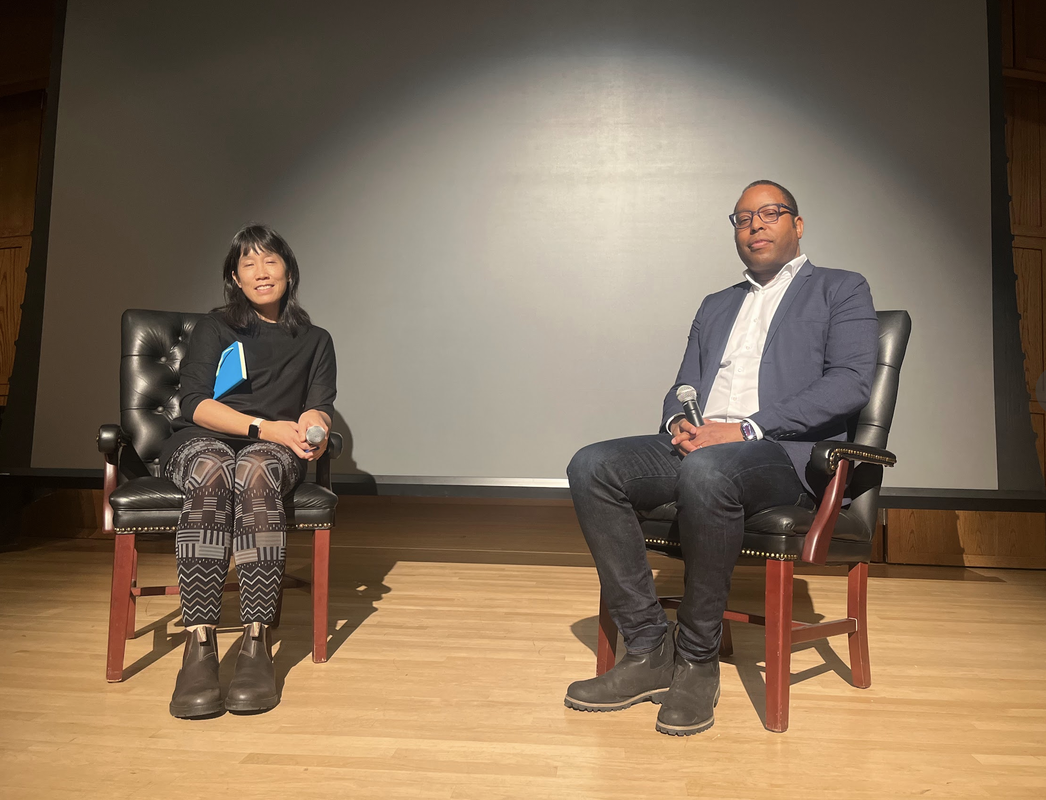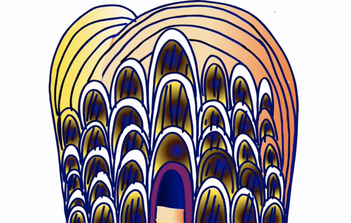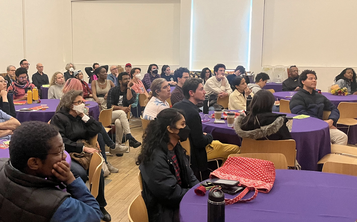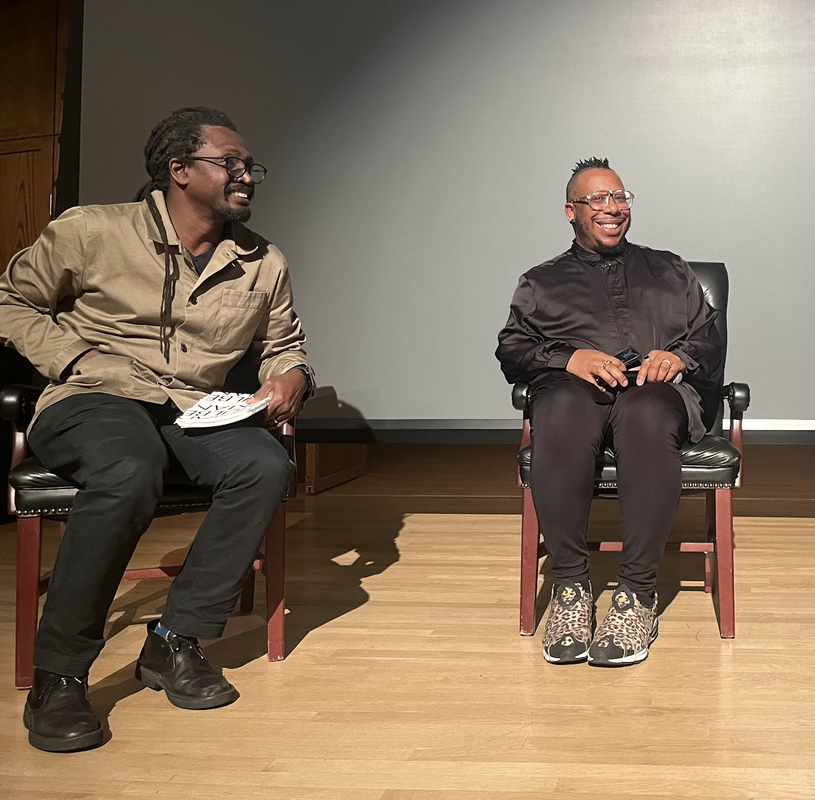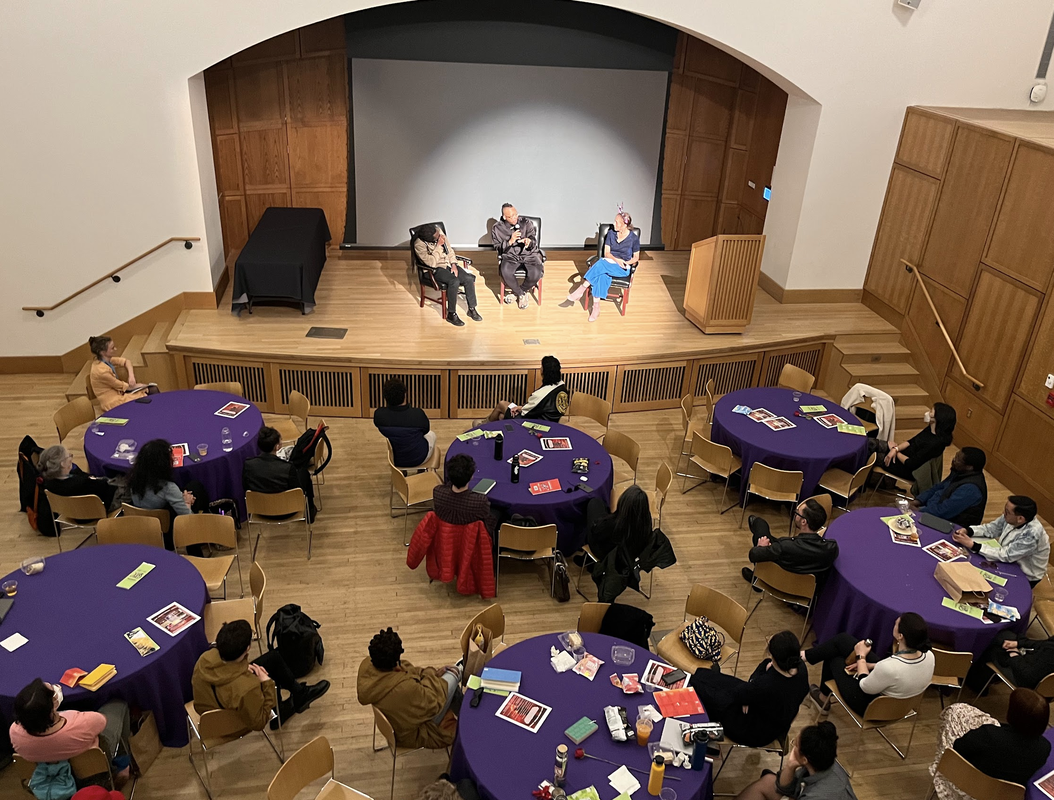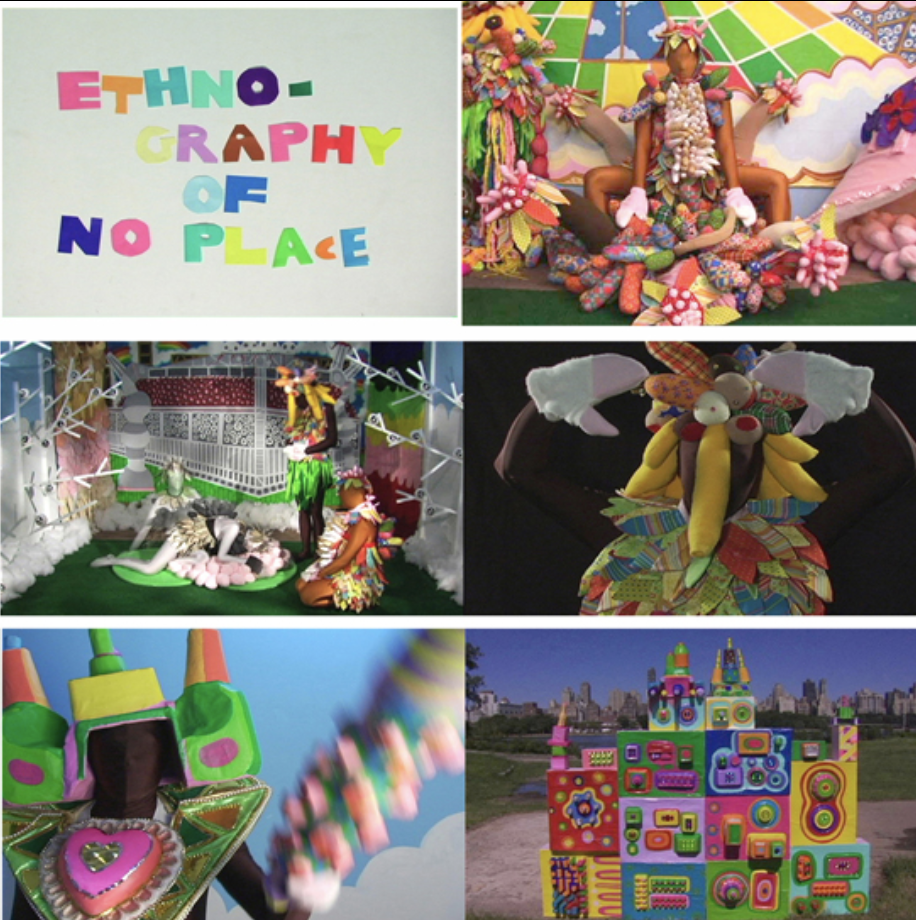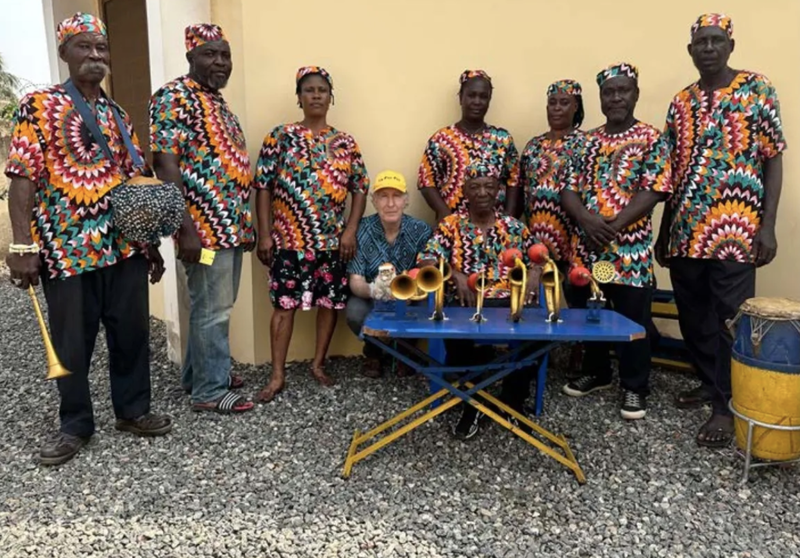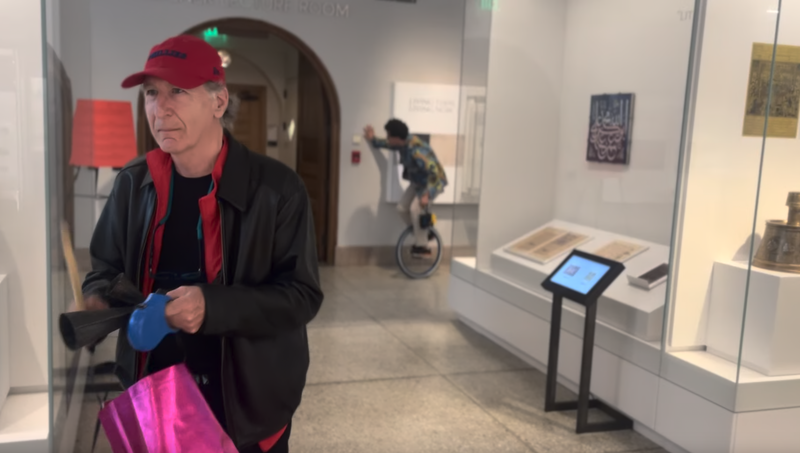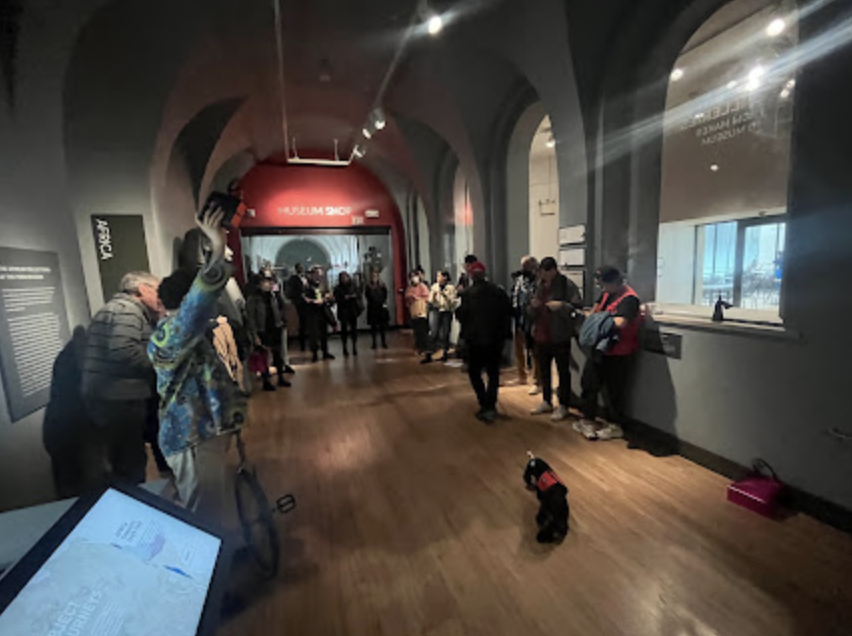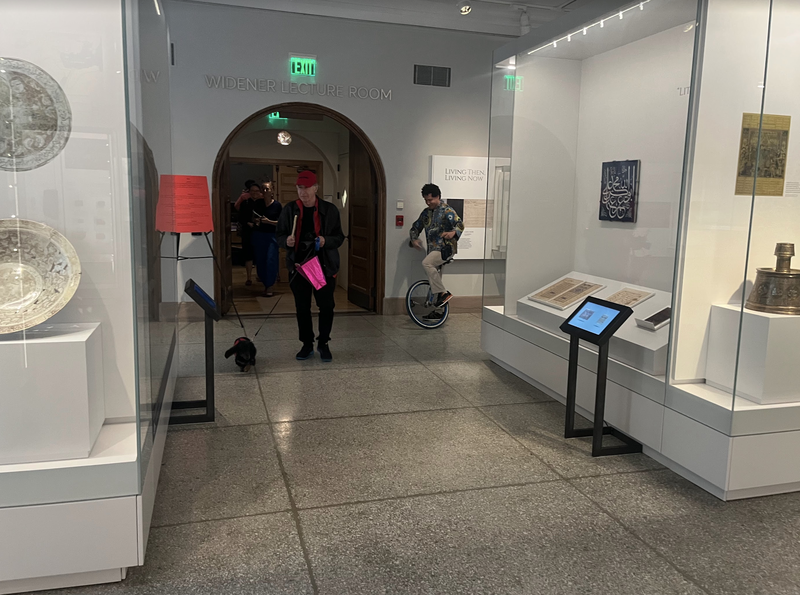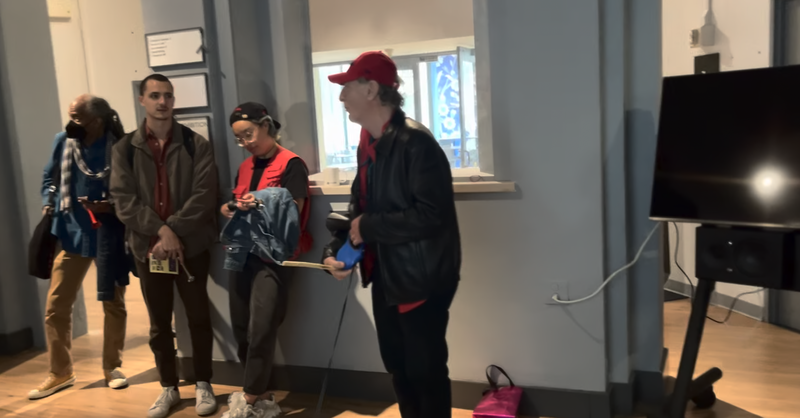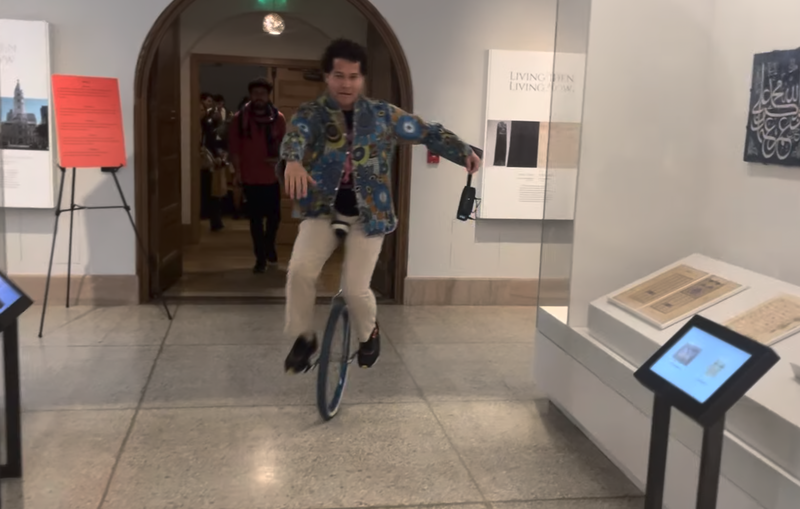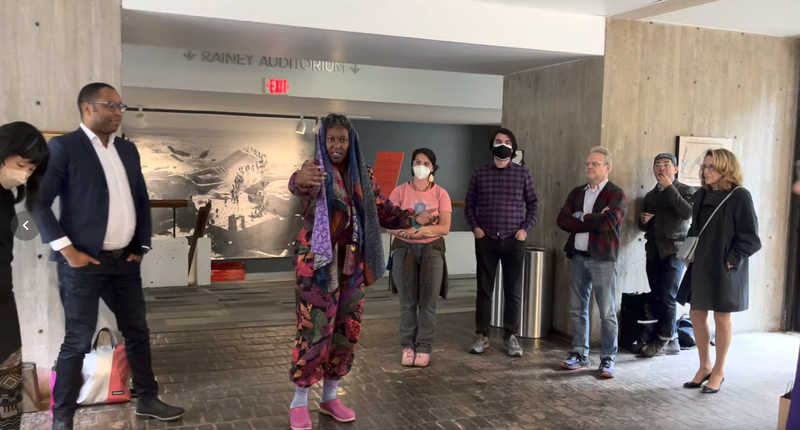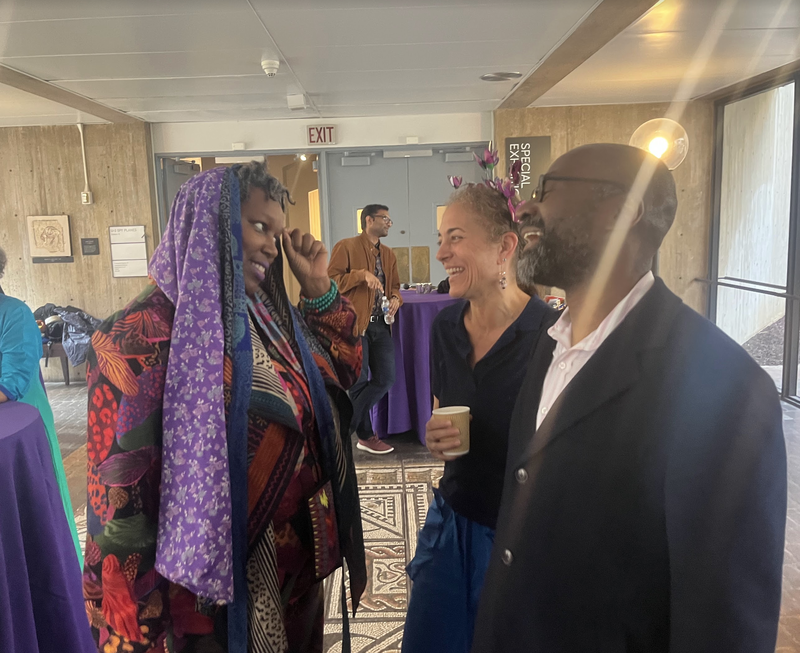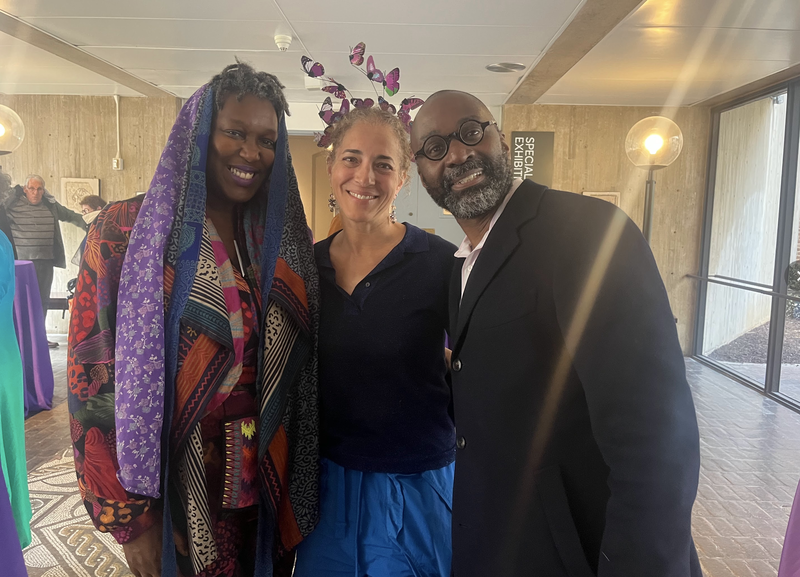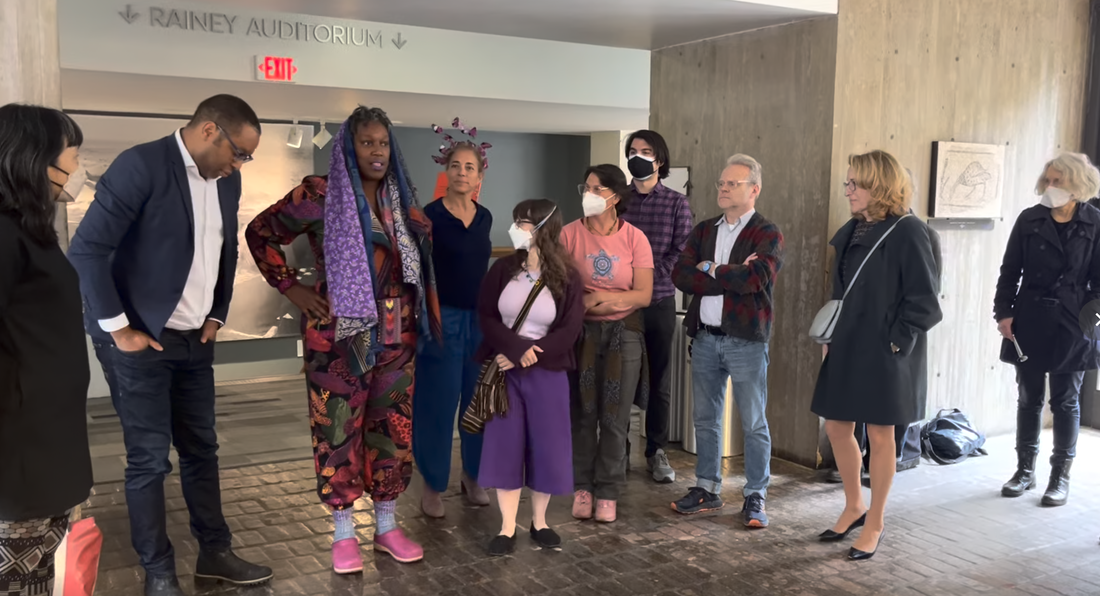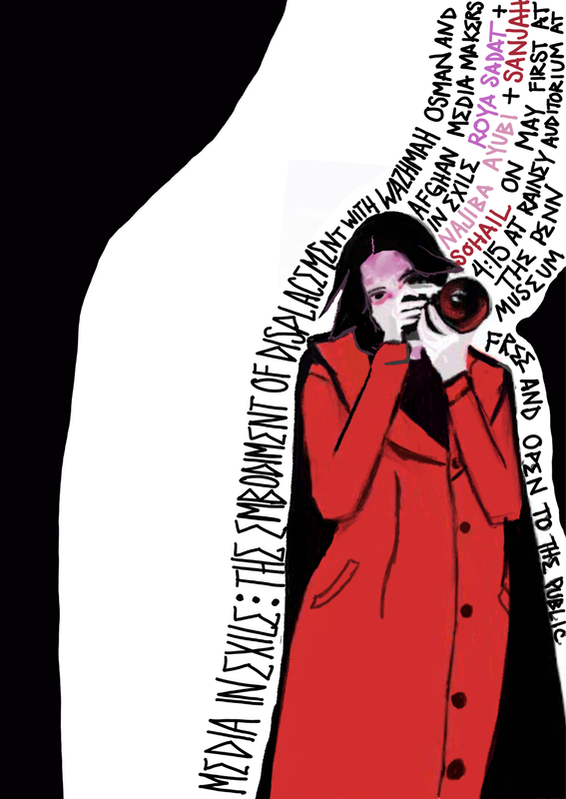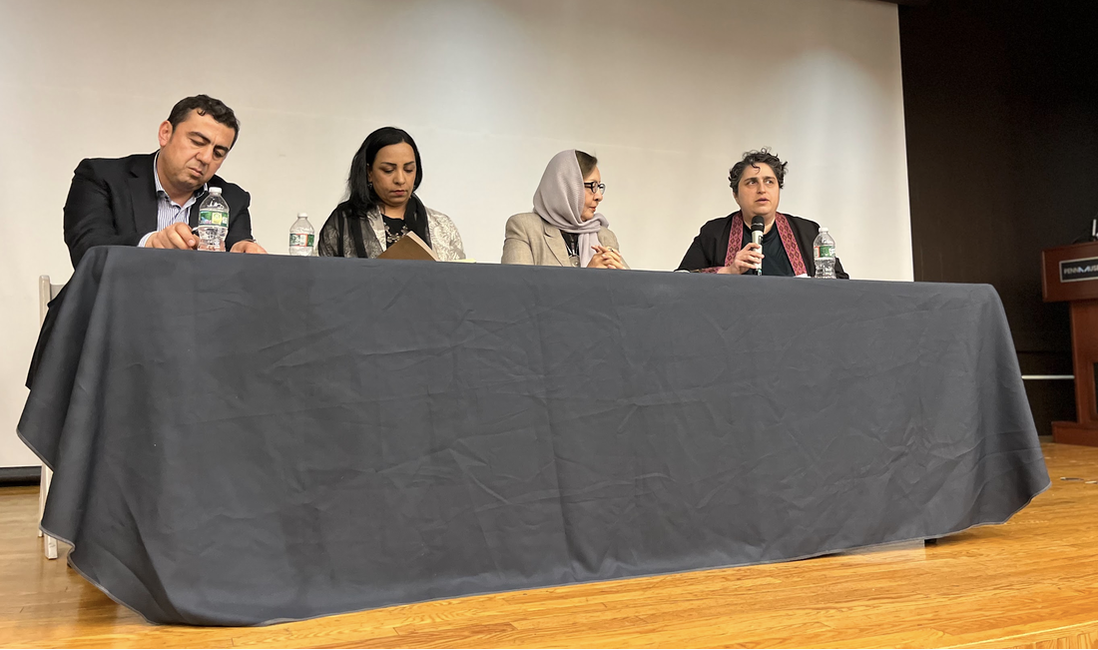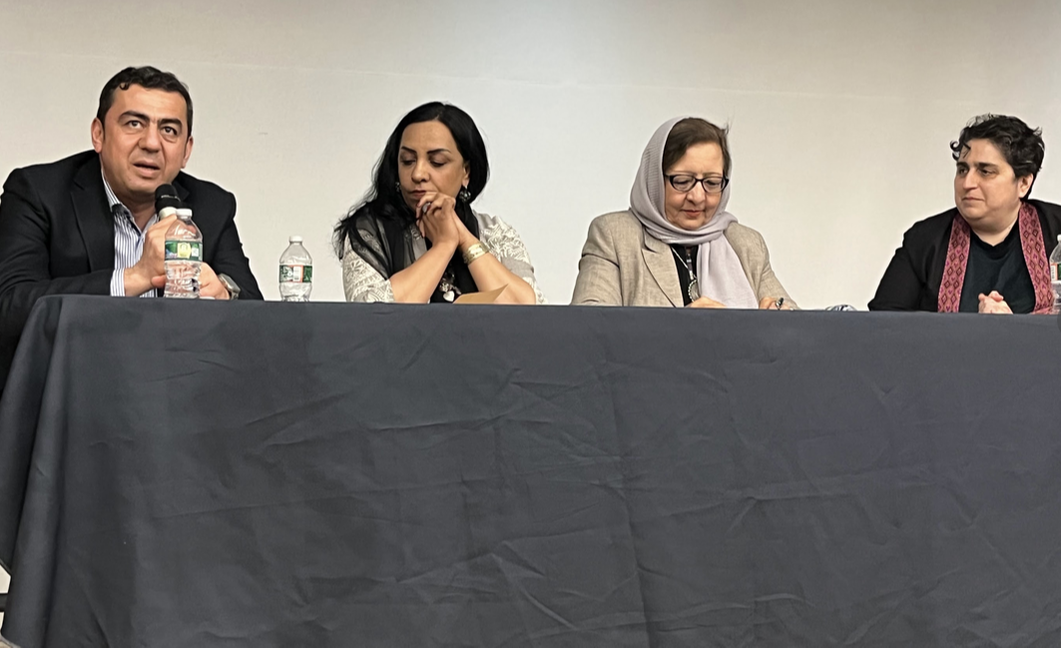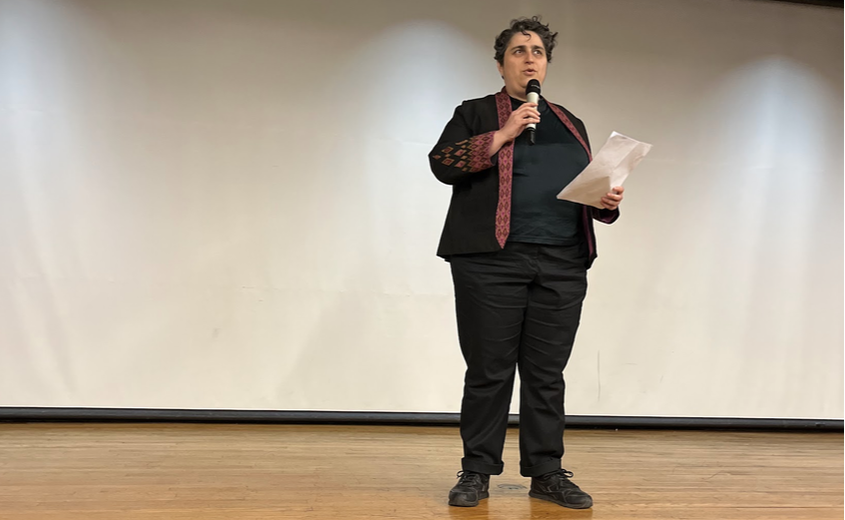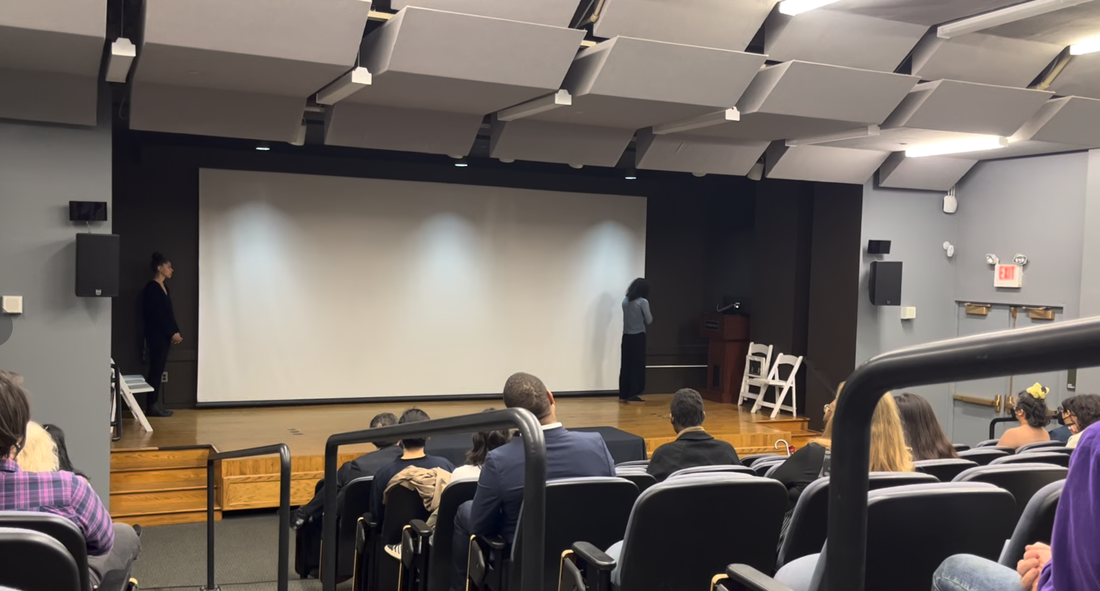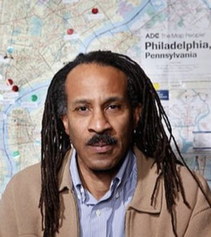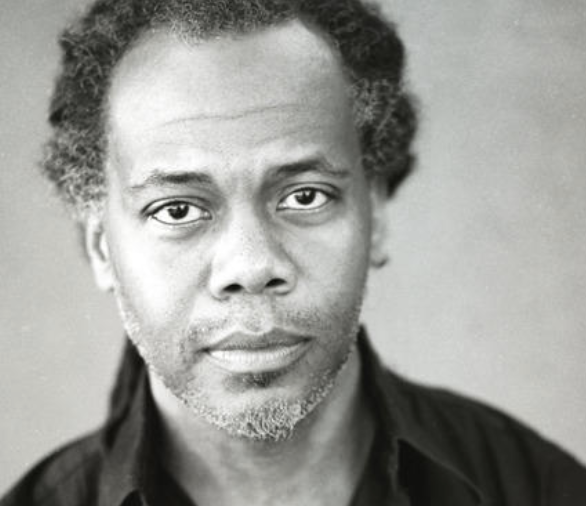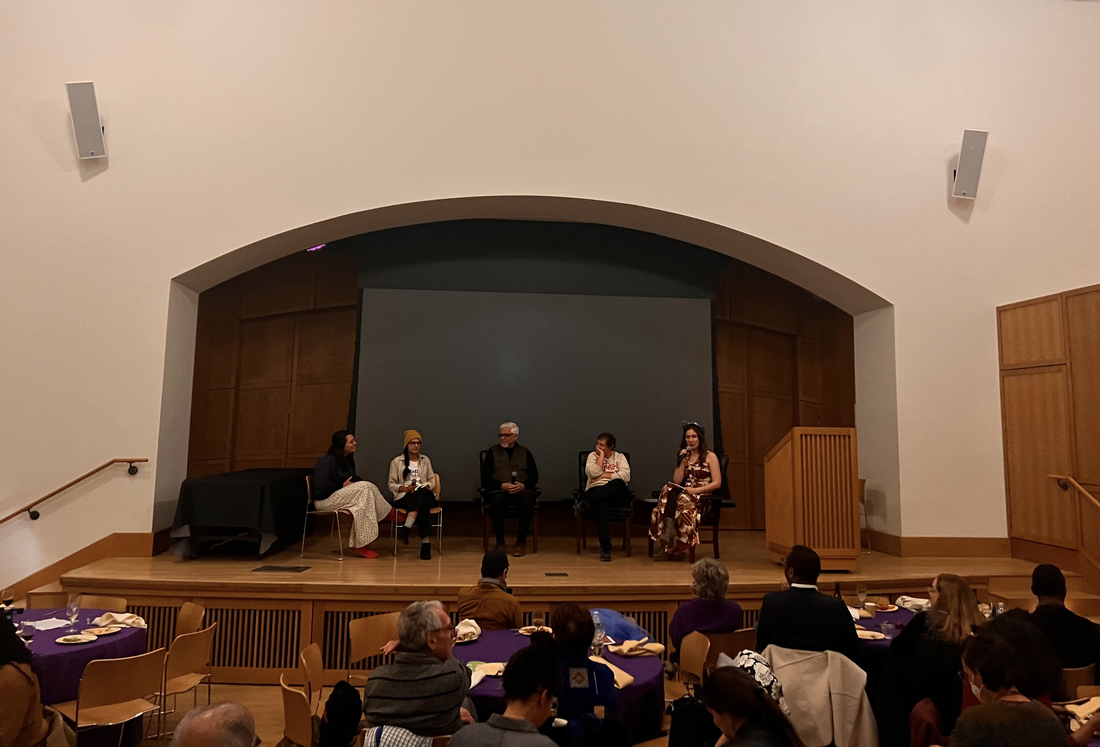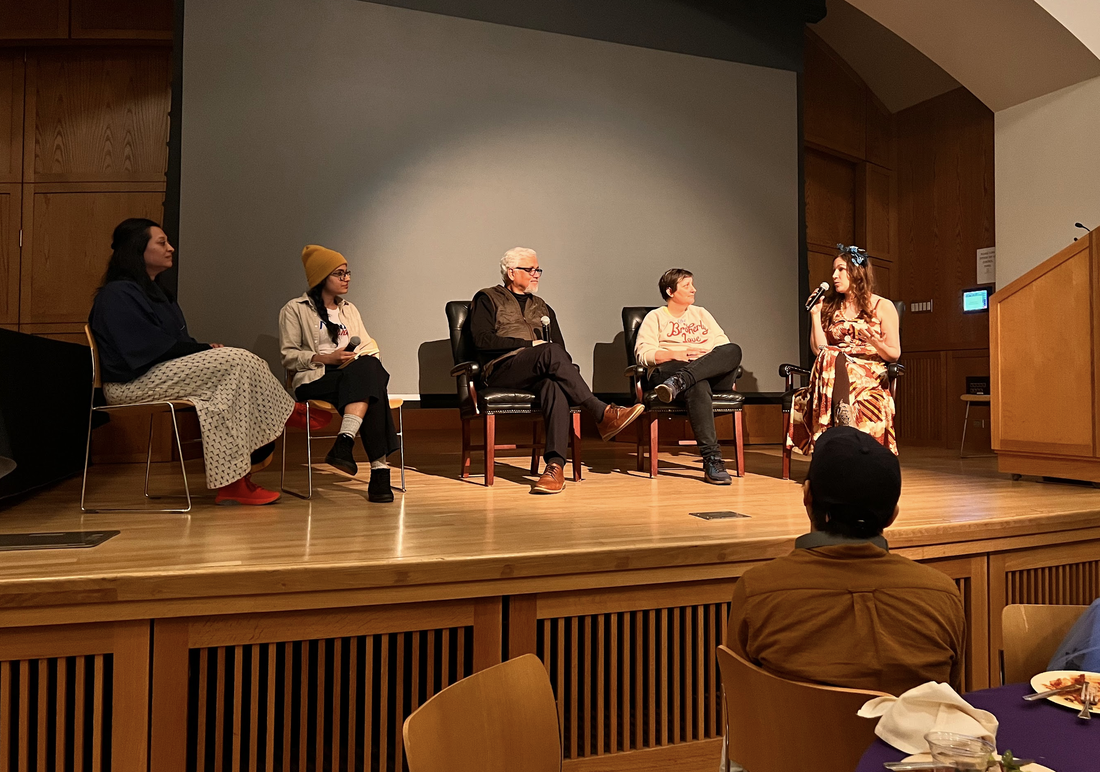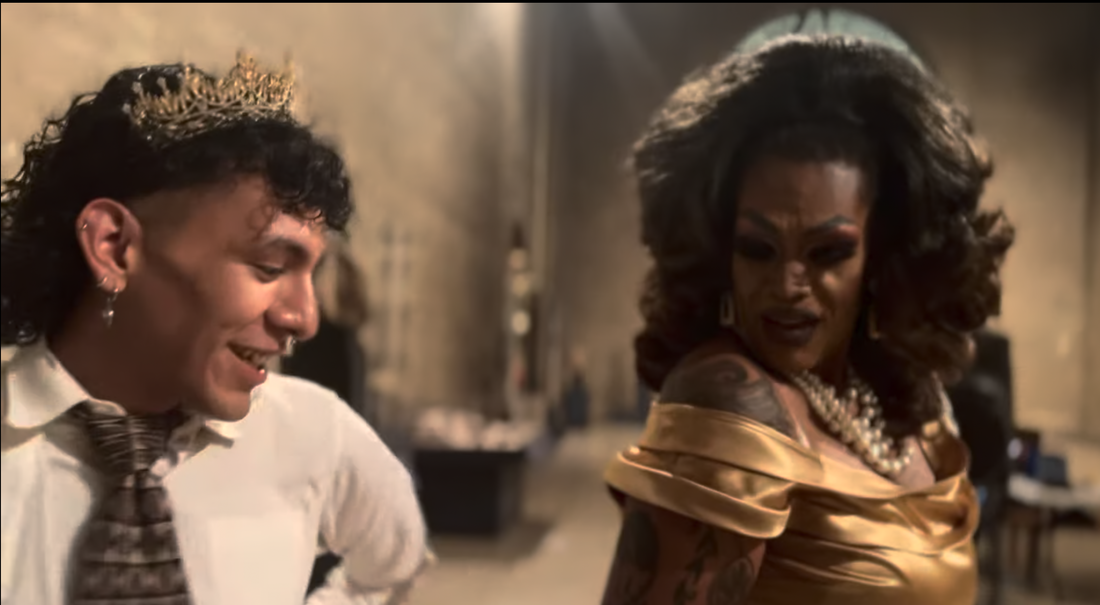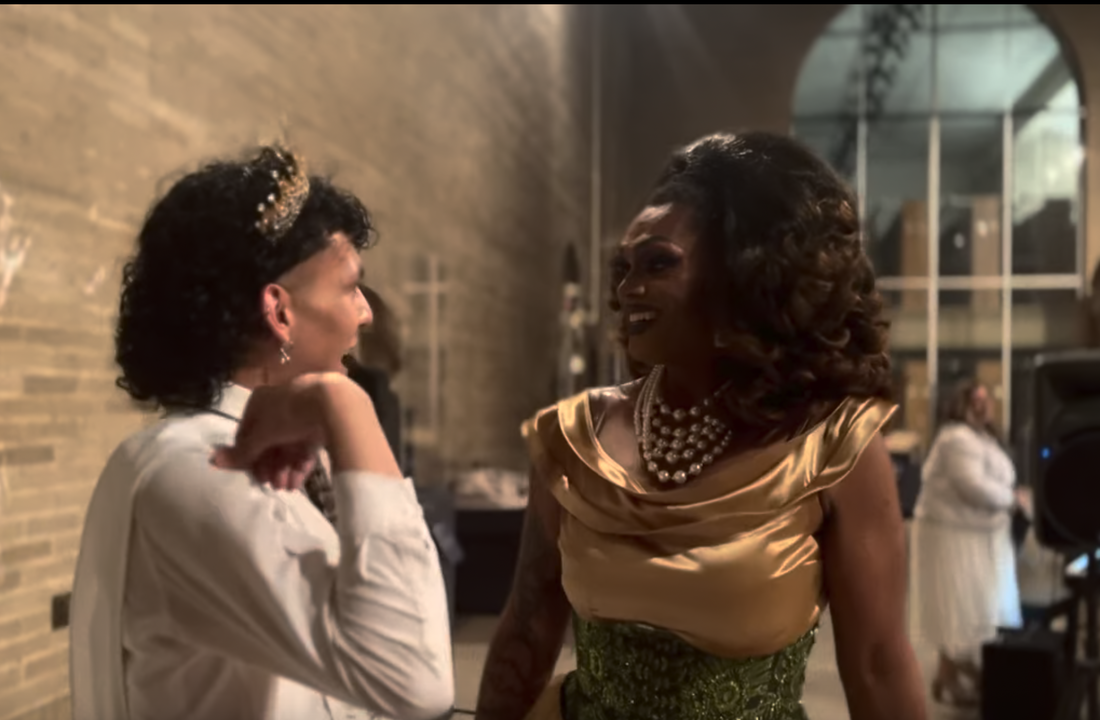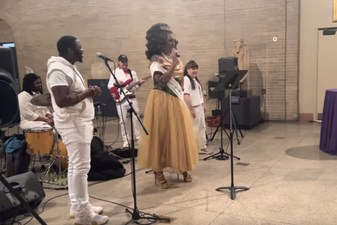CEE | Center for Experimental Ethnography
Menu
CARNIVAL
|
|
Photo by Ernst Karel
CARNIVAL
CEE celebrated its first five years with a 14-hour program themed “Carnival” on Monday, May 1, 2023 at the Penn Museum, 3260 South Street, Philadelphia.
|
"The space of CEE has been both haven and portal for faculty and students working at the intersection of research and creative practice, and we look forward to featuring our current and former fellows’ work in celebrating our first five years!” Deborah Thomas, CEE Director
Former CEE Fellows returned to Penn’s campus to share their research, practice, and creativity during Carnival, an event co-sponsored by the departments of Anthropology and Music, the Center for Media at Risk, the Center for Advanced Research in Global Communication, the Program in Cinema Studies, the Center for Programs in Contemporary Writing, and the Department of Fine Arts in the Stuart Weitzman School of Design.
Suture Self in the Garden Disco
|
PRIMO MAGGIO ANARCHICO
|
A live performance of Primo Maggio, the anthem of International Worker’s Day, by Trust Your Moves Choir
|
|
|
PERFORMANCE BY
Trust Your Moves Choir |
PRACTICE
Trust Your Moves Chorus is a queer community chorus in Philadelphia, designed around liberation and co-creation. All genders.* All musical abilities. ** |
SUTURE SELF IN THE GARDEN DISCO
A relaxation installation with lush textiles, plants, and music will provide the backdrop for a conversation about the quilt as an intimate textile that fosters rest, safety, and joy.
|
CREATOR
Emily Carris-Duncan AFFILIATION CEE Faculty Fellow RESEARCH Carris-Duncan’s practice uses textiles to unearth and preserve the untold stories of their ancestors by morphing the everyday objects that hold the traces of pain and trauma. They have created pieces that interweave their experience as descendant, with their stories so often overlooked and untold. In Carris-Duncan’s practice Slave shackles become iron liquor used to both hold and modify color when I’m using natural dyes. Plants historically used to control women’s health and reproduction become the basis of a dye palette for objects like a baby blanket, women’s underwear, and pillows to explore these themes. |
SOUNDINGS 1 |
Soundings from Imani Uzuri, accompanied by Deborah Thomas and Emily Carris-Duncan
|
|
CREATOR
Imani Uzuri AFFILIATION CEE Faculty Fellow Spring 2023 PRACTICE Imani Uzuri, raised in rural North Carolina, is an award-winning vocalist, composer, experimental librettist, and improviser called “a postmodernist Bessie Smith” by the Village Voice. She composes, performs, and creates interdisciplinary works (for theater, ritual performance, chorus, chamber ensemble, sound-art and film) often dealing with themes of ancestral memory, magical realism, liminality, Black American vernacular culture, spirituality and landscape. Her ritual performance Wild Cotton was cited as one “with subtlety and vision” by the New York Times. As a Jerome Foundation Composer/Sound Artist Fellow Uzuri began making international sojourns to over 30 shrines as embodied research for her forthcoming ritual opera celebrating the holy iconography of the Black Madonna. Recently in support of this new work, she was a Camargo Foundation Composer-In-Residence in Cassis, France. |
CONTINUE
CREATING FUTURE COUNTRYSIDES AND FUTURE CITIES
A discussion about different forms of portraiture, which included screenings and conversation between Jenny Chio and Damani Partridge. Jenny Chio is Associate Professor of East Asian Languages and Cultures and Anthropology at the University of Southern California. She holds a Ph.D. in Sociocultural Anthropology from the University of California, Berkeley, and an MA in Visual Anthropology from Goldsmiths College, University of London. As a cultural anthropologist and ethnographic filmmaker, her writing and filmmaking explore the shifting intersections of subjectivity, collective memory, and modernity, with an emphasis on race, ethnicity, and cultural heritage as powerful categories in the contemporary world. She investigates these issues through long-term ethnographic fieldwork and documentary filmmaking on independent and vernacular media practices, urbanization and the transformation of rural landscapes and livelihoods, and cultural tourism in the People's Republic of China.
|
Damani J. Partridge is a Professor of Anthropology and Afroamerican and African Studies at the University of Michigan, he has published broadly on questions of citizenship, affect, urban space, sexuality, decolonization, post-Cold War “freedom,” Holocaust memorialization, African-American military occupation, Blackness and embodiment, the production of noncitizens, the culture and politics of “fair trade,” and the Obama moment in Berlin. He has also made and worked on documentaries for private and public broadcasters in the United States and Canada, and currently directs the Filming Future Cities Project in Detroit and Berlin (see filmingfuturecities.org). |
MEXICAN PSYCHOTIC & SURREALIST FILMS
A screening of Ricardo Bracho's completed Mexican Psychotic video along with the videos made by students in his course, Surrealism in the Americas (Widener Hall). CREATOR:
Ricardo Bracho AFFILIATION CEE Faculty Fellow 2022 PRACTICE Ricardo A. Bracho is a playwright, performer, producer/dramaturg, and filmmaker who has a committed focus on working with feminist, queer, Latina/o, community-based and experimental theaters. His plays, which include The Sweetest Hangover, Sissy, Mexican Psychotic and Puto, have been staged read, workshopped and premiered in theaters and at universities nation-wide. His past academic appointments include Artist/Scholar-in-Residence at the Center for Chicano Studies at UC Santa Barbara and the Multicultural Faculty position at The Theatre School at DePaul University, and of course with us here at Penn as the Sachs Visiting Artist-in-Residence with the program in Gender, Sexuality and Women’s Studies. |
A CONVERSATION ON INSTITUTIONAL DECOLONIZING
JAMES CLAIBORNE
James Claiborne, a program and visual arts curator and educator brings more than 17 years of experience in the nonprofit cultural sector, and most recently served as the Barnes Foundation Curator of Public Programs, where he shaped the vision and strategy for inclusive cultural programming. Before joining the Barnes Foundation, James served as the Director of Programming at the African American Museum in Philadelphia (AAMP). He also recently served as an adjunct professor at Drexel University’s Westphal College of Media Arts Design, teaching audience development in the arts, with the focus on program creation, community engagement and marketing. |
WAYNE MODEST
Wayne Modest is the head of the Research Center of Material Culture. He is also professor of Material Culture and Critical Heritage Studies (by special appointment) in the faculty of humanities at the Vrije Universiteit, Amsterdam (VU). Modest was previously, head of the curatorial department at the Tropenmuseum, Amsterdam; Keeper of Anthropology at the Horniman Museum in London, and Director of the Museums of History and Ethnography in Kingston, Jamaica.Wayne Modest’s work is driven by a concern for more historically contingent ways of understanding the present, especially in relation to material culture/museum collections. His research interests include issues of belonging and displacement; material mobilities; histories of (ethnographic) collecting and exhibitionary practices; difficult/contested heritage (with a special focus on slavery, colonialism and post-colonialism); Caribbean Thought. More recently Modest has been researching and publishing on heritage and citizenship in Europe with special attention for urban life, and on ethnographic museums and questions of redress/repair. |
ETHNOGRAPHY OF NO PLACE
A screening of an early film collaboration by Saya Woolfalk and Rachel Lears entitled "Ethnography of No Place", which follows the evolution and reproduction of the Empathics. This was followed by a multi-modal response developed by members of CAMRA (Widener Hall). CREATOR:
Saya Woolfalk + Rachel Lears MORE Ethnography of No Place is a series of video works that document an imaginary world. Constructed from household materials (fabrics, sounds, gestures), the characters and stories evoke travel narratives, science fiction and the rhetoric of anthropology to rework tropes of sexual, racial, and gender difference. Inspired by the historical interconnections between anthropology and art, the piece invites reflection upon the utopian dimensions of both disciplines’ desire to make otherness knowable through visual representation and display. To see a multimedia presentation on the piece in the journal e-misférica, click here. |
HORN TO HORN
A listening session to a collaboration with honking horn truck drivers in Accra.
|
CREATOR
Steven Feld with Truck Drivers in Accra AFFILIATION CEE Faculty Fellow RESEARCH Steven Feld is a filmmaker, sound artist/performer, and Distinguished Professor of Anthropology Emeritus at the University of New Mexico. After studies in music, film, and photography, he received the Ph.D in Anthropological Linguistics at Indiana University in 1979. From 1976 he began a research project in the Bosavi rainforest of Papua New Guinea. Results include the monograph Sound and Sentiment (republished 2012 in a 3rd and 30th anniversary edition), a co-authored Bosavi-English-Tok Pisin Dictionary, and essays, some published in his co-edited books Music Grooves and Senses of Place. From this work he also produced audio CD projects including Voices of the Rainforest, Rainforest Soundwalks, and Bosavi: Rainforest Music from Papua New Guinea. Key theoretical themes developed in this work are the anthropology of sound and voice; acoustemology (acoustic epistemology), sound as a way of knowing |
MEDIA IN EXILE / THE EMBODIMENT OF DISPLACEMENT
CEE Fellow Wazhmah Osman organized a panel discussion that brought together Afghanistan’s most prominent media makers, now in exile in the US, Canada, and Europe, to shed light on the topic of Afghan media and media in exile.
PANELISTS
Wazhmah Osman + Sanjar Sohail + Roya Sadat + Najiba Ayubi ORGANIZER Wazhmah Osman is an Afghan-American filmmaker and associate professor in the Klein College of Media and Communication at Temple University. She is the author of Television and the Afghan Culture Wars: Brought to You by Foreigners, Warlords, and Activists (University of Illinois Press, Fall 2020). She is also co-director of the critically acclaimed documentary Postcards from Tora Bora and the co-author of the forthcoming Afghanistan: A Very Short Introduction (Oxford University Press). Her research and teaching are rooted in feminist media ethnographies that focus on the political economy of global media industries and the regimes of representation and visual culture they produce. |
The panel highlighted the progressive developments in media and democracy during the twenty-year post 9/11 era by highlighting the talent, work, and achievements of Afghan media makers who were at the forefront of Afghanistan’s culture wars. The panelists – Najiba Ayubi, Sanjar Sohail, and Roya Sadat – represent different media genres and ethnic groups. Ayubi was the managing director of the Killid Group, a network of radio stations and magazines; among her many accolades, she produced a 125-episode series on war crimes and war criminals, for which she was repeatedly visited and threatened by warlords. Sohail was the director of political affairs and news programming at Saba TV and its corresponding newspaper Hashte Subh, Afghanistan’s largest daily; he came under attack repeatedly by the Shura-i Ulama for reporting on the findings of the Afghan Independent Human Rights Commission (AIHRC). And finally, Sadat pushed gender rights forward with her groundbreaking television serials and award-winning documentaries, including the popular Khate Sewon. They have all won numerous international awards in journalism and the arts. Currently in exile, they are trying to continue their media work while contending with the hardships and uncertainties of dispossession and displacement.
Screenings and a discussion about what we get and take away from the value a place/space holds/shares, about how we move over time and space, and about whether or not this changes (Rainey) LOUIS MASSIAH
Louis Massiah is a documentary filmmaker and the founder/director of Scribe Video Center in Philadelphia, a media arts center that provides training and equipment access to community groups and the independent film/video community. His innovative approach to documentary filmmaking and community media have earned him numerous honors, including a MacArthur Fellowship “genius grant” 1996-2001, two Rockefeller/Tribeca fellowships and a Pew Fellowship in the Arts. His award-winning documentaries, The Bombing of Osage Avenue, W.E.B. Du Bois – A Biography in in Four Voices, two films for the Eyes on the Prize II series, and A is for Anarchist, B is for Brown, have been broadcast on PBS and screened at festivals and museums throughout the US, Europe and Africa. In 2011, he was commissioned to create a five channel permanent video installation for the National Park Service’s President’s House historic site. Currently, Massiah is executive producing two major community oral history projects, the Precious Places Community History project, a video project designed by Massiah and composed of 73 short documentaries produced collaboratively with neighborhood organizations in Philadelphia and Chester, PA, as well as Camden, NJ. He also is producing the Muslim Voices of Philadelphia community history project. |
REGGIE WILSON
Reggie Wilson is Executive and Artistic Director, Choreographer and Performer of Reggie Wilson/Fist and Heel Performance Group. His work draws from the cultures of Africans in the Americas and is combined with post-modern elements and his own personal movement style to create what he sometimes refers to as "post-African/Neo-HooDoo Modern dances." He has lectured, taught and conducted workshops and community projects, and had his work presented nationally and internationally. Wilson is a recipient of the Minnesota Dance Alliance's McKnight National Fellowship (2000-2001), is a 2002 BESSIE recipient, and is a 2002 John Simon Guggenheim Fellow. Wilson has been an artist advisor for the National Dance Project, a Board Member of Dance Theater Workshop, and in recognition of his creative contributions to the field, was named a 2009 United States Artists Prudential Fellow, as well as being a recipient of the 2009 Herb Alpert Award in Dance. Most recently, he curated Grounds That Shout! (and others merely shaking), a series of performances in Philadelphia’s historic sacred spaces. His newest work is titled POWER. |
JUNGLE-NAMA & a PARABLE "RETOLD"
|
A screening of clips from 'Retold' Documentary followed by a discussion with filmmakers in conversation with Amitav Ghosh, author of Jungle-nama, and Brooke O'Harra, director of Penn's production of Jungle-nama
CREATOR:
Amitav Ghosh + Brooke O'Harra + Alissa Jordan + Rabani Garg + Kinjal Dave MORE Jungle Nama is Amitav Ghosh's verse adaptation of an episode from the legend of Bon Bibi, a tale popular in the villages of the Sundarban, which also lies at the heart of the novel The Hungry Tide. It is the story of the avaricious rich merchant Dhona, the poor lad Dukhey, and his mother; it is also the story of Dokkhin Rai, a mighty spirit who appears to humans as a tiger, of Bon Bibi, the benign goddess of the forest, and her warrior brother Shah Jongoli. The original print version of this legend, dating back to the nineteenth century, is composed in a Bengali verse meter known as dwipodi poyar. Jungle Nama is a free adaptation of the legend, told entirely in a poyar-like meter of twenty-four syllable couplets that replicate the cadence of the original. "Retold" was a student documentary on the production of "Jungle-nama: A Story of the Sundarbans," the first English-language production of Amitav Ghosh's text by the same name, set to singer/songwriting sensation Ali Sethi's music, and performed by Penn students directed by Brooke O'Harra. |
A graduate film crew directed shots, documented the course, workshop, and performance, interviewed performers, edited performance cuts, and finally traveled to the Sundarbans over summer. In two trips to India, members of the documentary crew contextualized religious performance traditions, screened performance cuts from Penn, and held talk-back sessions with community performance groups. The documentary crew consisted of CEE Students Adwaita Banerjee, Kinjal Dave, Rabani Garg, Raka Sen, Prateekshit "Kanu" Pandey mentored by Alissa Jordan, Associate Director of the CEE.
DANCE PARTY WITH DJ REEZY
Contact Us // 438 PENN MUSEUm // [email protected]
© 2018 The Trustees of the University of Pennsylvania

